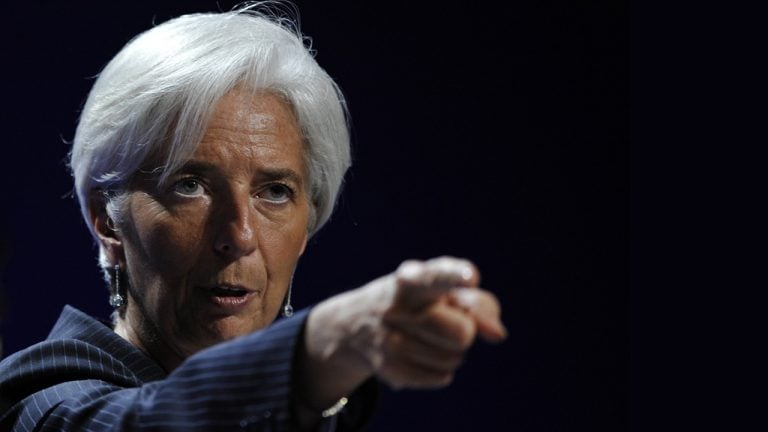ECB Raises Benchmark Rate by 75bps and Tones Down Long-Term Refinancing Operations
Publikováno: 27.10.2022
 On Thursday, the European Central Bank (ECB) announced the central bank’s third consecutive benchmark bank rate increase this year, raising the rate by 75 basis points (bps). In addition to the rate hike, the ECB changed the central bank’s targeted longer-term refinancing operations terms and conditions noting that they need to be “recalibrated.” ECB Hikes […]
On Thursday, the European Central Bank (ECB) announced the central bank’s third consecutive benchmark bank rate increase this year, raising the rate by 75 basis points (bps). In addition to the rate hike, the ECB changed the central bank’s targeted longer-term refinancing operations terms and conditions noting that they need to be “recalibrated.” ECB Hikes […]

On Thursday, the European Central Bank (ECB) announced the central bank’s third consecutive benchmark bank rate increase this year, raising the rate by 75 basis points (bps). In addition to the rate hike, the ECB changed the central bank’s targeted longer-term refinancing operations terms and conditions noting that they need to be “recalibrated.”
ECB Hikes Rate in Attempt to Curb Red-Hot Inflation
Eight days ago, the European Union’s statistics office Eurostat published the latest inflation report for September. Eurostat’s records indicated that Euro area annual inflation jumped to 9.9% in September, the highest in 40 years. A week later, the European Central Bank (ECB) and the central bank’s president Christine Lagarde hiked up the benchmark bank rate for the third time in a row.
We’ve just taken our latest monetary policy decisions, determining what’s needed to achieve stable prices in the euro area.
Tune in to #TheECBPodcast to hear President Christine @Lagarde present the decisions in our press conferencehttps://t.co/tMkt8cf4tC
— European Central Bank (@ecb) October 27, 2022
The rate was increased by 75bps and the terms and conditions for targeted longer-term refinancing operations (TLTROs) will be changed and adjusted as of November 23. The ECB said that the TLTROs played an important role during the Covid-19 pandemic and now the refinancing operations need an adjustment. “During the acute phase of the pandemic, this instrument played a key role in countering downside risks to price stability,” the ECB stressed.
The central bank added:
Today, in view of the unexpected and extraordinary rise in inflation, it needs to be recalibrated — In order to align the remuneration of minimum reserves held by credit institutions with the Eurosystem more closely with money market conditions, the Governing Council decided to set the remuneration of minimum reserves at the ECB’s deposit facility rate.
Central banks across the globe are attempting to see how they can gauge the deposit facility rate and curb inflation at the same time. Most of the central banks have been lagging behind the U.S. Federal Reserve, which is expected to raise the federal funds rate (FFR) by 75bps next month.
Slowly but surely, as it’s an indicator with significant lag, the European Union’s higher borrowing rates or cost of lending increases across the nation’s financial industry. With the ECB raising the rate by 75bps, the higher borrowing costs will affect all the market participants in the European Union (EU) going forward. For instance, EU mortgage rates tapped a seven-year high this month as they jumped a full percentage point by the end of August.
What do you think about the ECB raising the benchmark bank rate by 75bps? Let us know what you think about this subject in the comments section below.